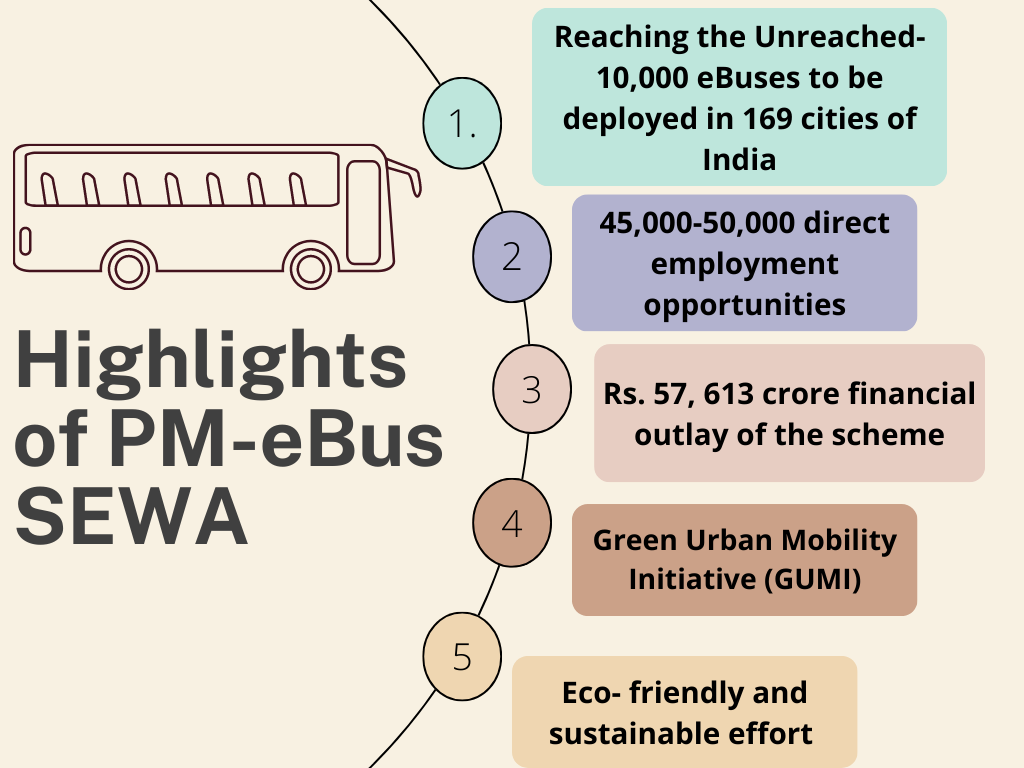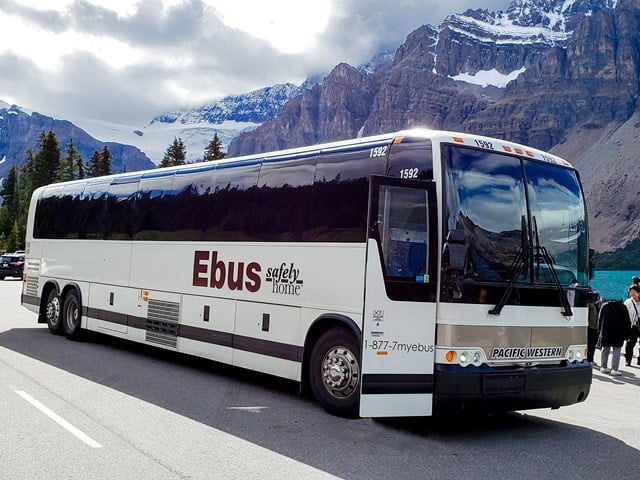PM eBus Sewa, Union Cabinet, Government of India, electric bus, public private partnership model, Green Urban Mobility Initiative, GUMI, augmentation of city bus services, reaching the unreached, North-Eastern region, hilly areas, Mumbai, Himachal Pradesh, Switch EiV22
PM eBus Sewa is a landmark development towards promoting connectivity within the country. This service is an attempt made by Government of India to connect the isolated places with the mainstream region. This would not only enhance connectivity but also lead to secondary developments such growth of markets, accessibility, easy transportation of goods and services to the untouched regions of the country. The Union Cabinet in its session on Wednesday, 16th August, 2023, gave its approval for the scheme.

Table of Contents
What is an eBus?

An electric bus popularly known as eBus is an on road vehicle which runs on electricity from zero emission sources such as batteries, hydrogen fuel cell, overhead wires etc. These sources possess charging capacity or they can be carried on-board via solar panels, battery banks or regenerative brakes. Such vehicles do not let out harmful emissions which is otherwise done through petrol/diesel run vehicles. These are productive sources to prevent air pollution, noise pollution, fuel cost, climatic changes and it can be considered as a sustainable alternative for a better tomorrow.
Benefits of eBus:
- Zero tailpipe emissions
- Environment friendly
- Cost-effective
- Easily rechargeable
- Low maintenance expenses
- Provides better energy efficiency
- Low on noise levels
- Consumer friendly in an urban set up.
- Provides swift and hassle free services.
PM eBus Sewa : key features
The following are the key features of PM-eBus Sewa:
- It is an initiative of Government of India based on Public-Private-Partnership (PPP) model.
- It is intended for boosting transportation in urban areas mainly in cities where there are no existing organised bus services.
- The total number of eBuses to be deployed is 10,000 which will function in 169 cities of India.
- The cities listed under the scheme will be those consisting of more than 3 lakh population as per 2011 Census report including all cities and Union Territories.
- Special emphasis will be given to North Eastern Region and Hill states which lacks organised transportation services.
- The scheme will generate direct employment opportunities up to 50,000.
- The financial outlay of the scheme is Rs. 57, 613 crore out of which Rs. 20,000 crore will be provided as support from the Central Government.
Segments of PM eBus Sewa:
The scheme is divided into two segments-
- Elevating bus services by reaching the unreached:
The PM-eBus Sewa aims to expand connectivity and its primary goal is to reach out to the isolated or interior cities of the nation for a period of 10 years. With its widespread use, the scheme will also result in cost savings for the purchase of such buses. Along with eBus connectivity, there would also be Associated Infrastructure to support for development or upgradation of depot-infrastructure. provision has also been made for creation of behind-the meter power infrastructure such as sub-stations for those buses.
2. Green urban Mobility Initiatives (GUMI):
The scheme has also undertaken yet another initiative to implement green mobility in the 181 cities of the country. It envisages green initiatives like bus priority, infrastructure, multimodal interchange facilities, NCMC-based Automated Fare Collection Systems, Charging infrastructure, etc. Under the scheme, States/Cities shall be responsible for running the bus services and making payments to the bus operators. The Central Government will support these bus operations by providing subsidy to the extent specified in the proposed scheme. The creation of an enduring supply network for electric cars as well as the promotion of breakthrough technology in the e-mobility industry will both be facilitated by the support for bus priority infrastructure. Modern, energy-efficient electric buses will be distributed more widely as a result.
Frequently Asked Questions (FAQs):
In which state India’s first electric bus services has been launched?
Himachal Pradesh is the first state in India to have electric bus services for Rohtang pass visit.
What is the cost of an electric bus?
The cost of an electric bus in India ranges from Rs. 1-2 crores.
Which city in India has recently introduced electric bus to replace diesel buses?
Mumbai has recently replaced diesel-run buses with electric double decker bus. The name of the eBus is Switch EiV22.
Also read:
PM SVANidhi Yojana (पी एम स्वनिधि योजना) 2020- 2024: A Boost to street vendors
The Digital Personal Data Protection Bill 2023: Safeguarding Privacy in the Digital Age


Pingback: UDGAM 2023: RBI launches new web portal for citizens, how to find unclaimed money, log in link, online registration - WisdomJuncture